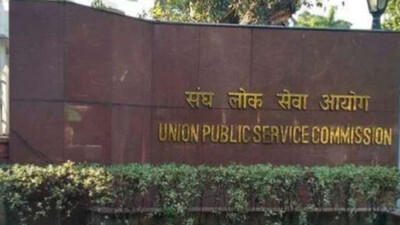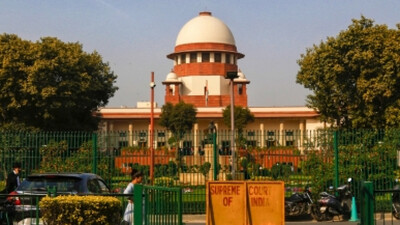Recommended Stories
Pakistan was on the edge on Sunday ahead of a crucial session of its Parliament to vote on a no-confidence motion against Prime Minister Imran Khan amidst call for protest by the embattled cricketer-turned politician against a foreign conspiracy to oust him.
The National Assembly session was scheduled to start at 11:30am (local time) as was announced by Deputy Speaker Qasim Suri while presiding over the last session on March 31.
The Opposition parties need 172 members of the 342-member National Assembly to orchestrate the defeat of Khan and already they have claimed the support of 177 members, more than the needed strength to oust the prime minister.
The National Assembly secretariat has issued a six point agenda including the voting on the no-confidence motion.
The combined opposition filed the no-confidence motion on March 8, setting a set of events leading to the day of voting and rise in the tension due to Khan's insistence that he was being targeted as part of the foreign conspiracy with the collaboration of top opposition leaders.
Khan, 69, on Saturday issued a call to the followers of his Pakistan Tehreek-e-Insaf (PTI) party, especially the youth, to hold peaceful protests on the day of voting to reject the conspiracy and assembly proceeding to topple the government.
He earlier described the rebel lawmakers as "traitors" and said that they will be branded as such for the rest of their lives as he pleaded with them to come back and foil the Opposition's attempt to topple his government.
Khan, who had earlier asked his party lawmakers not to attend the no-confidence session, has now ordered them to participate in the proceedings and mount a vociferous defence of their prime minister.
Talking to Dawn newspaper, Information Minister Fawad Chaudhry confirmed that the prime minister had withdrawn the letter previously sent to party members calling on them to skip the sitting of the lower house and said Khan would lead PTI members himself during the session.
There are reports that the government may try to physically prevent opposition members and nearly two dozen PTI dissidents from reaching the Parliament House through protestors.
Citing unnamed sources, Geo News reported that Khan's party had planned to bring its protesters to D-Chowk and right up to the main gate of Parliament House, despite clear directives from the Supreme Court, which had banned all types of gatherings inside the high-security Red Zone.
According to some other reports, the Speaker, who is a die-hard follower of the ruling party, may prolong the proceedings allowing the ruling party lawmakers resort to filibustering.
Pakistan opposition has also submitted a no-confidence motion against Qaisar. More than 100 lawmakers have signed the motion.
After the non-confidence against him, Qaisar cannot preside over the session, according to opposition, which feared that the speaker would try to take some illegal measures to avoid the voting on no-confidence against the Prime Minister.
Violence is also feared not just outside the parliament building but also in the house as treasury lawmakers would try to provoke the Opposition.
Security around the Red Zone housing the Parliament building has been beefed through deployment of more than 6,000 security personnel of police and paramilitary forces, including Pakistan Rangers and Frontier Corps.
Local administration has imposed Section 144 in Islamabad. The Red Zone has been sealed with big containers and barbed wires and with tightened security in the capital, said a statement issued by Islamabad deputy commissioner.
Meanwhile, Chaudhry also announced that the federal government had removed Punjab Governor Chaudhry Mohammad Sarwar from his post.
The announcement also came hours before the National Assembly session as well as a sitting of the Punjab Assembly to elect a new leader of the house following chief minister Usman Buzdar's resignation.
It was not immediately clear why the federal government decided to remove Sarwar and the information minister, who announced the development on Twitter, did not provide a reason.
The minister said that the new governor would be announced later. "According to the Constitution, the deputy speaker [of the Punjab Assembly] will be the acting governor," he said.
Sarwar apparently did not agree with Prime Minister Khan's nomination of Chaudhry Pervez Elahi for the post of chief minister of Punjab.
Khan, who came to power in 2018 with promises to create a Naya Pakistan', is at a critical juncture of his political career as he has lost majority after defection from his Pakistan Tehreek-e-Insaf (PTI) party. Two of his allied parties also withdrew their support and joined the ranks of the rejuvenated Opposition.
No Pakistani prime minister has ever completed a full five-year term in office. Also, no prime minister in Pakistan's history has ever been ousted through a no-confidence motion, and Khan is the third premier to face the challenge.













